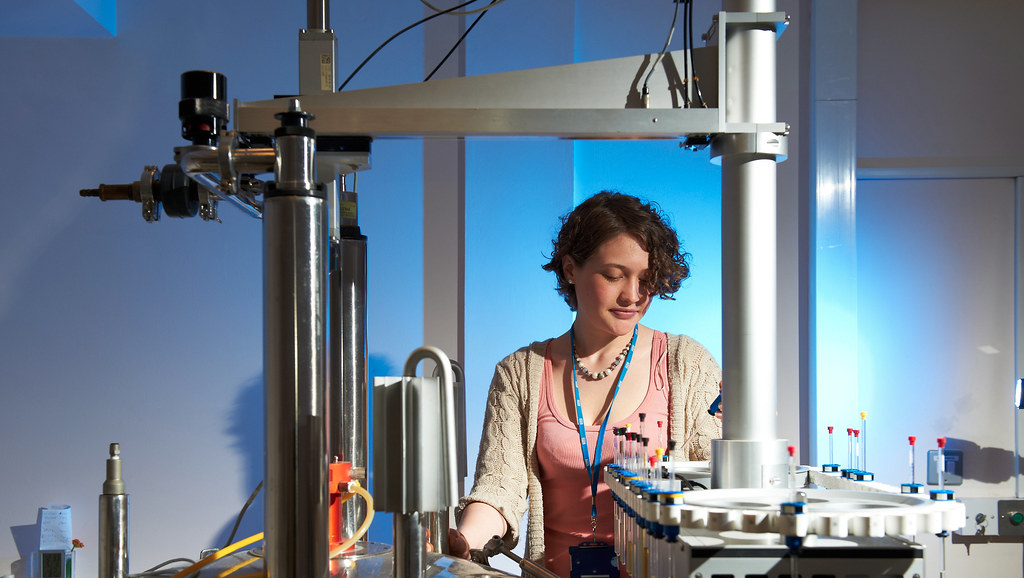Nuclear Magnetic Resonance (NMR) can be thought of as asking nuclei questions about their local environment and then listening to the response. Some of the application areas where NMR can help include:
- Confirmation of the successful synthesis of target compounds
- Identification of unknown compounds, either from unexpected results or from natural products
- Quantitation and purity assessment of samples
All aspects of solution state NMR are undertaken in the Facility, including, but not limited to, variable temperature studies, multinuclear work (e.g. 11B, 19F, 31P), molecular self-diffusion studies, 2D multinuclear experiments, and kinetic studies.
Equipment in the Department of Chemistry
- 400 MHz Bruker Neo for routine use on a full range of nuclei, with multi-receive capabilities and a 60 position SampleCase sample changer
- 500 MHz Agilent ProPulse with a 96 position sample changer, temperature control in automation and a full range of nuclei including 19F
- 400 MHz Bruker Avance for use by trained staff and postgraduate students, capable of a wide range of multinuclear NMR experiments and used particularly for variable temperature spectroscopy
- 500 MHz Bruker Avance II+, also used by trained staff and postgraduate students for the acquisition of advanced multinuclear NMR spectra
Equipment in the Department of Pharmacy and Pharmacology
- 400 MHz Bruker Avance III for routine use walk-up, mainly 1H and 13C experiments, equipped with a 60 position SampleXpress automatic sample changer
- 500 MHz Bruker Avance III for more advanced NMR techniques, including 1D and 2D 19F and 15N experiments, also with a 60 position BACS sample changer
NMR equipment for Reaction Monitoring
- 500 MHz Bruker Avance III with Prodigy cryoprobe, and equipped with flow tube for dynamic reaction monitoring
Case studies
- Studying parasites using nuclear magnetic resonance for the University of Bristol.
- Purity analysis of chemical products manufactured by LGC, Biosearch Technologies.
- Monitoring polymerisation reactions in real time with the DReaM Facility and Monash University.
